Innovative approaches such as land restoration and private-public partnerships, as well as revisiting tried approaches such as herd grazing and indigenous land management, offer partial answers to the challenges of a changing climate in WNC forests.
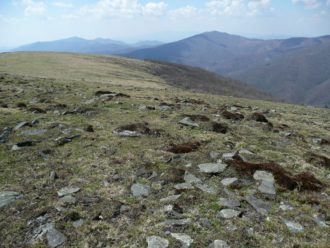

Innovative approaches such as land restoration and private-public partnerships, as well as revisiting tried approaches such as herd grazing and indigenous land management, offer partial answers to the challenges of a changing climate in WNC forests.
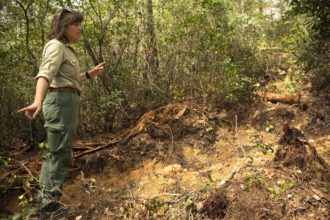
Maintaining trails in Western North Carolina’s mountain forests poses tough choices between recreation and sustainability.

Climate change and extreme weather events disrupt habitat areas and food sources in NC mountain forests, while human infrastructure blocks natural migration paths and creates dangers near roadways for large animal species.
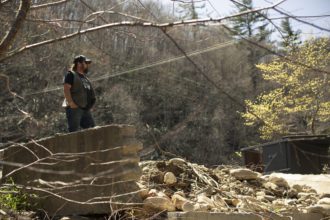
Researchers seek to understand risks climate change poses for the Blue Ridge woodlands of Western North Carolina while many residents experience the disruption of extreme weather.

“I support Commissioners Brownie Newman and Jasmine Beach-Ferrara’s calls for the occupancy tax to be used for community needs vs. more tourism marketing.”

“Cataldo Perrone, spokesperson for Pratt & Whitney, was quoted in the Mountain Xpress as saying, ‘The military aircraft we power are engaged in defensive operations designed to help defend freedom around the world.’ I think we need to take a closer look at that claim.”
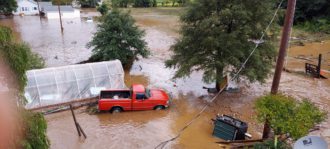
Uncertainty is a fact of life at nonprofits, especially with regard to funding. But local organizations are increasingly attuned to another uncertainty: how to prepare for the consequences that climate change will have on their work.

“These candidates have a proven record of support for addressing climate change and protecting our environment.”

“I believe Maggie will listen to and elevate the voices within our community and create an inclusive, collaborative environment so we together can tackle our community’s critical challenges, which span housing to city services to climate change impact. “


“Bill will work to investigate how Raytheon Technologies’ subsidiary Pratt & Whitney was approved for almost $100 million dollars in varied tax incentives to build a fossil-fuel-intensive airplane parts plant here.”
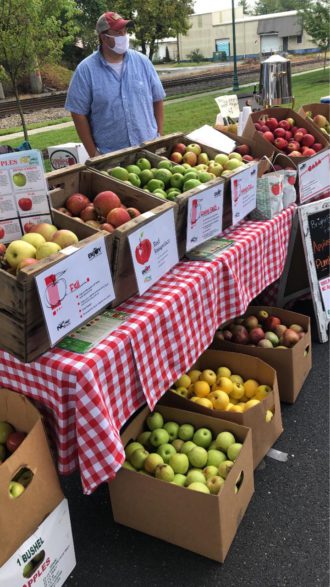
The late freeze in spring 2021 caused millions of dollars in damages throughout the region, as well as price hikes and supply chain issues for many local farmers and distributors. How worried should they be about WNC’s tumultuous weather?

Whether by hiking the debris flow pathway of a landslide or reading arcane scientific articles, Karin Rogers dedicates herself to understanding complex scientific data so she can translate that information for ordinary people to understand.

“Maggie Ullman Berthiaume is the only City Council candidate with environmental or climate credentials, and she has two qualities we need: 1) leadership on environmental issues and 2) a proven ability to work with the city.”

“Trees are our No. 1 defense against a warming world and, here in Asheville, we’re on a disturbing trend toward canopy loss. Every tree counts.”
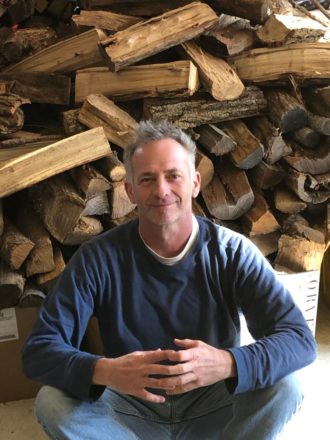
“By the end of the decade, I predict that … Newbies who, in 2022, called out longtime residents as NIMBYs for opposing unbridled development will, by 2029, be NIMBYs themselves.”
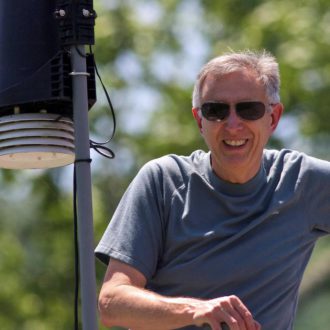
The founder of Ray’s Weather Center speaks about the local forecast service’s growth over the years, how meteorologists handle the area’s tricky topography and what weather sayings carry a grain of truth.
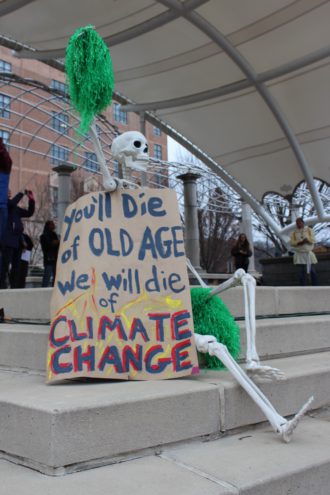
In fiscal year 2019-20, the most recent year for which data is available, the city emitted the equivalent of roughly 18,000 metric tons of carbon dioxide. Its target for the year was approximately 15,600 metric tons of CO2, about 15% less than the actual figure.

White nose syndrome, a fungal disease first seen in Western North Carolina in 2011, has reduced some local bat populations by as much as 95%. And climate change poses a long-term challenge to their habitats and survival.

“Right now, there’s a historic opportunity to invest $3.5 trillion in our communities by passing the Build Back Better deal.”

“What is the point of envisioning the future if, when the future arrives, the plans are changed and can’t be counted on? People lose trust.”